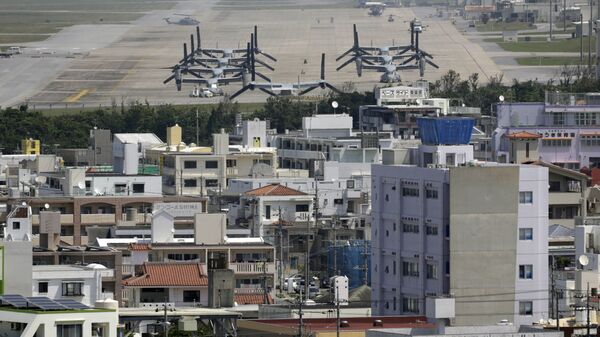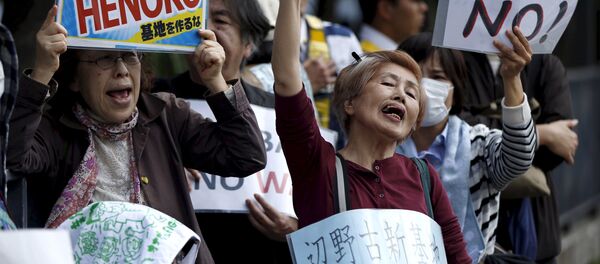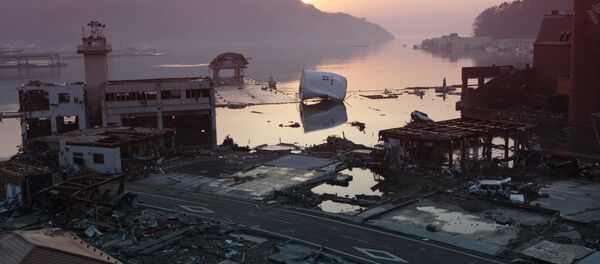On March 14 the Japanese government protested to the US after a US Navy sailor allegedly raped a Japanese tourist.
The attack occurred in Naha, the capital of Okinawa Prefecture and one of Japan's most popular tourist destinations. The victim is from the Fukuoka Prefecture and was reportedly staying in the same hotel as the serviceman when the attack happened.
The Japanese government has "expressed a strong protest" to the US, which said they "are taking this matter seriously," Japanese Chief Cabinet Secretary Yoshihide Suga said on Tuesday.
In response to the incident, the US military has banned US servicemen from spending the night off their base.
This is not the first time the US military has promised to crack down on the bad behavior of US servicemen on Okinawa. In 2012 a curfew was imposed on soldiers after two US servicemen were arrested for the rape and robbery of a local woman.
"Servicemen are supposed to return to their bases before a specified time, but that rule is often broken," Suzuyo Takasato, a former deputy in the parliament of Naha, Okinawa, told Sputnik.
"Often soldiers stay the night in the capital of Okinawa, as happened this time. This latest case of rape is not the only one. There are often complaints from residents in the prefecture about harassment from American servicemen; soldiers accost women on the street, try and get into their hotel rooms," she said.
Takasato is the co-chair of Okinawa Women Act Against Military Violence, a pressure group formed in September 1995 following the rape of a 12-year-old Okinawan girl by three US servicemen.
She said that the Treaty of Mutual Cooperation and Security the US and Japan signed in 1960 does not exert sufficient control over the behavior of US military personnel in Japan.
Incredible. Tokyo riot police assault an Okinawan in Henoko during a protest of the alleged rape by a sailor stationed…
Posted by I Oppose the Expansion of US Bases in Okinawa on Tuesday, 15 March 2016
The Treaty allows US servicemen to live in Japan without registering with the Japanese authorities, a condition which other foreigners have to adhere to.
The Japanese authorities are only given information about the number of US soldiers at the bases, and in contrast to US forces' freedom of movement, the Japanese are not allowed to enter a US base, under threat of arrest.
"This agreement does not protect the residents of Okinawa, it is intended to safeguard comfortable conditions for US soldiers living in Japan," Takasato complained.
"Soldiers can go outside their bases whenever they want, but that doesn't mean that they can break the laws of the country they are in. I am not afraid to say that the Treaty of Mutual Cooperation and Security allows Americans to feel so free in our country, that they can molest women with impunity."
Their presence is a particular concern for people in Okinawa, where about 25 percent of all facilities used by US Forces Japan and about half of the US military personnel are located, despite the prefecture comprising less than 1% of Japan’s total land area.




